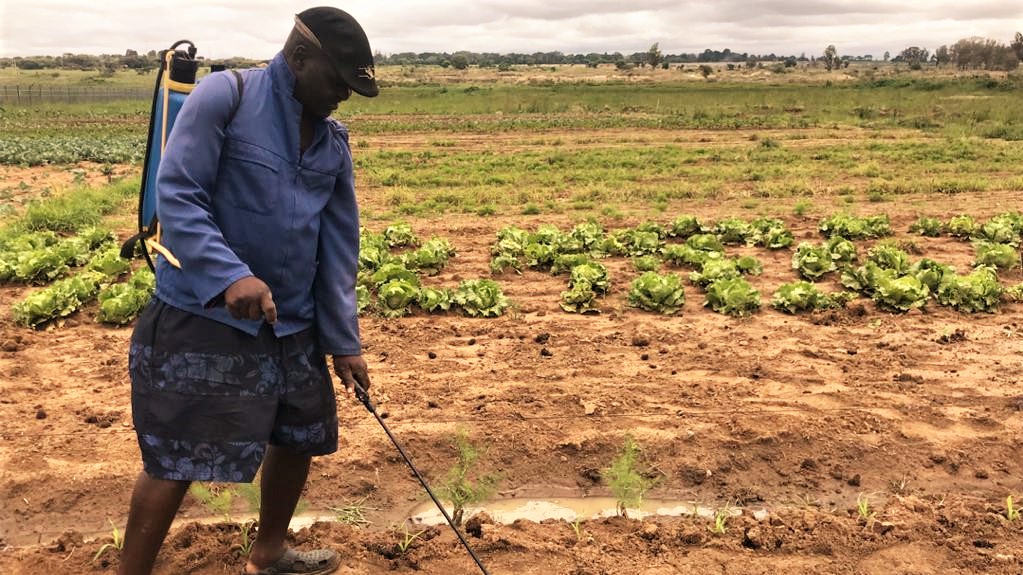Bigboy Musemwa, the founder of REPAIR EARTH PREOJECTS (REP) grew up green-fingered, loving trees. He is continually dumbfounded by how our once healthy green planet is being degraded for profit, overseen by our current economical systems, geared to ever increasing production all around the planet.

True climate change efforts need to move beyond compliance, embed sustainability into the core business strategies, and take further steps to reach aspirational goals.
Biggie, as he’s fondly known in Zimbabwe, is just one of many thousands of farmers in Africa who have recognised the need for change and the potential of permaculture to achieve sustainability. Applied to our gardens and forests, permaculture heals and avoids the degradation of soil. At the same time our projects provide local populations with both food and income while partially helping to repair the local eco-systems.
Biggie, as he’s known to his friends, comes from a farming family and learned how to grow vegetables and crops at a very young age. He soon realised the dangers and limitations of his family’s reliance on artificial fertilisers and pesticides.
This understanding led him, from 2012 onward, to start learning everything he could about permaculture and applying it.
He is a member of the Permaculture Association (based in GB) and has studied at the Fambidzanai Permaculture Institute in Harare, Zimbabwe.
What do we want to achieve?
To spread and multiply the establishment of permaculture demonstration gardens and nurseries, and the provision of water treatment services to the general public.
The main objective would be to plant trees to regreen almost desertified areas, and to provide safe and healthy food and clean water for the people in our communities.
How can we help other projects?
In Zimbabwe we work in the provinces of Harare and Mashonaland.
New projects, wherever started, are welcome to join forces and participate in our programs.
We are a growing projects group, running the Repair Earth Project, where we raise trees (fruit and non fruit) for free distribution to councils, old people’s homes; orphanages, schools and colleges.
Our aim, in our efforts to curb the alarming environmental degradation gripping our planet, is to urge people to value the importance of trees.
Who we are and what is our background?
I am Bigboy Musemwa, 46 years old and a member of the British Permaculture Association.
Our Repair Earth Project grows trees for distribution to communities to raise awareness of the importance of trees in reducing environmental desertification.
We also run a permaculture demonstration garden in the Chihota District which offers using our skills gained in a PDC from the Fambidzanai Permaculture Institute.
All of us are working on environmental conservation ideas, to reduce the coming effects of climate change, as the earth’s people and global industry keep degrading the planet.
The situation becomes worse day by day, despite the Kyoto Treaty being signed in 1997. Moreover, even though the Earth Summit was held in South Africa in 2002, it was a marked damp squib as it ended up being about political grand standing!
In reality, the current system urges competition on the market for profit. This prevents effective action to deal with global warming, desertification and pollution until we find a way to make saving our eco systems into a profitable business.
A while back I donated fruit trees to the Melfort Old People’s Home where I was encouraged to read the works of Bill Mollison. This motivated me to join the Permaculture Association.
I then organized the Repair Earth Projects (REP), which involves community members in curbing environmental degradation through tree planting and tree protection. It also increases their appreciation of the importance of Permaculture – which is all about advocating a sustainable ecological way of living.
REP donated more than 10,000 trees to help us achieve our goal of restoring the planet by educating communities in Zimbabwe and recognizing the importance of tree planting to environmental protection and the preservation of future life.
Having joined the Permaculture Association, it’s our wish to work with global experienced permaculture practitioners so as to gather in depth knowledge of the importance of ecologically sustainable development.
